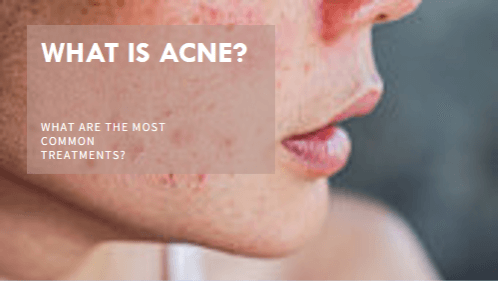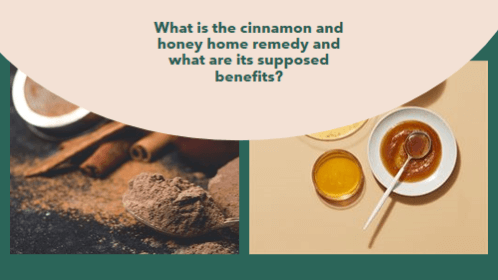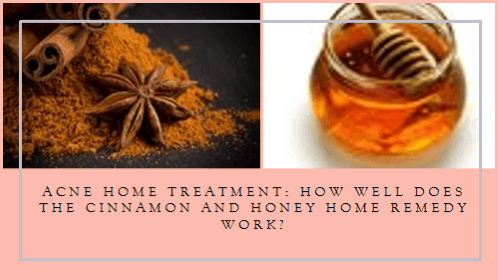Acne is a common skin condition that affects many people. There are a variety of treatments available, including over-the-counter and prescription medications, as well as acne home treatment.
One popular home remedy is to use cinnamon and honey together. Some people believe that the combined antimicrobial, antioxidant, and anti-inflammatory properties of these two ingredients may help clear up pimples. However, there is limited scientific evidence supporting this claim.
You may be keen to get some therapeutic graded cinnamon, as well as some therapeutic graded honey.
What is acne and what are the most common treatments?

What is acne?
Acne is a common skin condition that affects many people, particularly adolescents and young adults. It is caused by overactive oil glands that produce too much sebum, which can clog pores and lead to blackheads, whiteheads, and pimples. There are a variety of treatments available for acne, including over-the-counter and prescription medications, as well as home remedies.
Over-the-counter
The most common over-the-counter medications used to treat acne are benzoyl peroxide and salicylic acid. These work by killing the bacteria that cause acne, drying out the skin, and removing excess oils.
Prescription
Prescription medications used to treat acne include antibiotics, benzoyl peroxide, and topical and oral retinoids, including isotretinoin (also known as Accutane). These work by killing the bacteria that cause acne, unblocking pores, and reducing the amount of sebum produced by the skin.
Home remedies
Home remedies for acne include using honey and cinnamon together, using green tea bags on the skin, using aloe vera gel on the skin, using apple cider vinegar as a toner, and using lemon juice on the skin. While there is limited scientific evidence supporting the use of these remedies for acne, some people find them to be helpful.
We will look at each one. However, our focus will be on cinnamon and honey home remedy.
What is the cinnamon and honey home remedy and what are its supposed benefits?

The cinnamon and honey home remedy is a popular folk remedy for mild to moderate acne. The two ingredients combined are said to have anti-inflammatory, antioxidant, and antibacterial properties that help clear up acne blemishes.
To make the remedy, combine 1 teaspoon of honey with 1/2 teaspoon of cinnamon. Apply the mixture to the acne-prone areas and leave it on for 15 minutes. Rinse it off with warm water.
There is limited scientific evidence to support the purported benefits of the cinnamon and honey home remedy for acne. However, some people say that it has helped them clear up their skin.
How well does the cinnamon and honey home remedy work for acne treatment?
There is no definitive answer to this question as the effectiveness of the cinnamon and honey home remedy for acne treatment will vary from person to person.
The bottom line is that more research is needed in this area.
However, some people who have tried this remedy report that their acne cleared up significantly within a short period. This may be due to the anti-inflammatory and antibacterial properties of both cinnamon and honey.
Other popular home remedies for acne treatment?

Several people use other popular home remedies for mild to moderate acne treatment. These include using green tea bags on the skin, using aloe vera gel on the skin, using apple cider vinegar as a toner, and using lemon juice on the skin.
How are these remedies used and what are their purported benefits for problem skin?
– Green tea bags:
The caffeine in green tea is thought to help reduce inflammation and redness. To use, place green tea bags on the skin for 15 minutes and then rinse with warm water, or you can make a green tea mask.
– Aloe vera gel:
Aloe vera has anti-inflammatory properties that may help reduce acne blemishes. To use, apply aloe vera gel to the skin and leave it on for 15 minutes before rinsing with warm water, or you can make a recipe with aloe vera gel.
– Apple cider vinegar:
Apple Cider Vinegar (ACV) is a popular folk remedy for acne. It is thought to help balance the pH levels of the skin, which can reduce the number of breakouts. To use, mix 1 part ACV with 2 parts water and apply it to the skin using cotton.
– lemon juice:
Lemon juice is thought to have antibacterial and astringent properties, which may help reduce acne. To use, apply lemon juice to the skin and leave it on for 10 minutes before rinsing with warm water, or use a recipe.
Are there any side effects to consider when using cinnamon and honey home remedy?
Overall, the cinnamon and honey home remedy is generally safe to try for acne treatment. However, it is important to be aware of the potential side effects before using it.
First, honey can cause skin irritation in some people, so it is important to test a small amount on a patch of skin before using it on your entire face.
Second, high doses of cinnamon can be harmful, so it is important not to apply too much of the mixture to your skin.
Third, both honey and cinnamon can cause allergic reactions in some people, so it is important to test for allergies before using this remedy.
Why you should consult with a dermatologist
If you are considering using the cinnamon and honey home remedy for acne treatment, it is important to consult with a dermatologist first. This is because acne is a complex condition that can be caused by a variety of factors, so it is important to get professional advice before trying any home remedies.
Dermatologists can also provide other effective treatments for acne, such as topical medications, oral medications, and light therapy.
Scientific limitations
The cinnamon and honey home remedy for acne treatment has not been extensively studied in scientific research. There is limited scientific evidence to support the supposed benefits of this remedy. However, some people say that it has helped them clear up their skin.
Conclusion
There are several popular home remedies for acne treatment that people use. These include using cinnamon and honey, green tea bags, aloe vera gel, apple cider vinegar as a toner, and lemon juice on the skin. All of these remedies have their purported benefits for acne-prone skin. However, more research is needed to confirm their efficacy.
